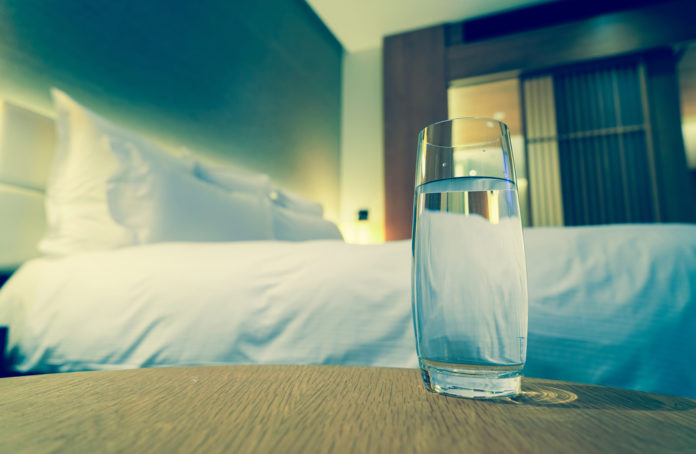The Claims of Drinking Water Before Bed
Keeps You Hydrated
There certainly is great truth that drinking water keeps the body hydrated. And going without it cannot only be physically and mentally damaging, but potentially even fatal. Though hydration is extremely important, the steps to maintain it are not necessarily confined to bedtime, but rather that you consume at least 64-ounces of water daily and replenish appropriately based on exercise, fever, etc.
Helps You Lose Weight
Sip water, shut your eyes, and lose weight… Sounds too good to be true, right? Well, you can reap such benefits but without requiring that bedside order. Despite the hour of the day, water plays an infinite role in healthy weight loss. First off, water supports an efficient metabolism, supplies the body’s cells with vitamins and minerals obtained from foods, and fosters effective digestion processes. Thirst is often mistaken for hunger and keeping hydrated can deter trips to the kitchen and lessen the risk of overeating, especially when drinking before and with meals.
Reduces Heart Attack Risk
There is an ongoing claim drinking a glass of water before bed can lessen your risk of a heart attack, particularly related to evidence signifying dehydration can trigger one. However, the American Heart Association and other reputable health organizations recommend several ways of decreasing heart attack risk, none of which harp on drinking water before bed.
Increases Trips to the Bathroom
It goes without saying drinking too much water before bed (and throughout the day) increases trips to the bathroom. According to Medline Plus, urinating more at night may be caused by drinking too much fluid during the evening, though caffeine intake after dinner, bladder and urinary tract infections, pregnancy, diabetes, and heart failure may also be triggers.
So, Is Drinking Water Before Bed Good for You?
There really is no benefit to drinking water before bed, especially if you keep hydrated throughout the day, but rather greater consequences. Getting up to use the bathroom interrupts the sleep cycle, ultimately breaking up and impeding on the seven to nine hours that are recommended. In fact, too little shuteye can even hinder weight loss goals by disturbing hormones and energy levels. Inadequate sleep is also a factual risk factor for a number of health conditions, including heart disease, unlike the evidence-lacking claim that drinking water before bed can lessen heart attack risk. Nonetheless, individuals can simultaneously maintain hydration and optimize sleep cycles with the following tips:
- As a general rule of thumb, consume at least 64-ounces of water throughout the day.
- Start the day with glass of water and drink before and with meals and snacks, as doing so can also lessen the risk of overeating.
- Keep a reusable 16 to 20-ounce water bottle on hand and aim to fill it three to four times a day.
- Drink more soda, juice, and other fluids over water? Amplify the flavor and nutrient profile with these 13 ways to make your water better.
- Stray away from fluids approximately three hours before bedtime.
- If feeling extra thirsty come bedtime, allow yourself to take a few sips of water or a calming cup of chamomile tea. Non-water ways to quench thirst include fresh or frozen fruit, mint, gelatin, and sour candy.
- But if thirst is becoming a gnawing issue, consult with your primary care provider, as it may represent an underlying health condition such as diabetes.
- And if sleep is compromised not based on thirst or bathroom wakeup calls, also seek out professional help. Insomnia not only has severe consequences, but can signify a greater health concern.









